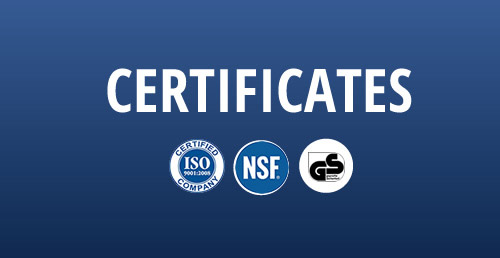epoxy resin anchor
Understanding Epoxy Resin Anchors Strength, Versatility, and Applications
In the realm of construction and engineering, securing structures and components is paramount. One of the most effective methods to achieve this is through the use of anchors. Among various anchoring systems, epoxy resin anchors have gained significant popularity due to their strength, versatility, and wide array of applications. This article will explore the characteristics, benefits, and applications of epoxy resin anchors.
What Are Epoxy Resin Anchors?
Epoxy resin anchors consist of a two-part adhesive system that hardens to form a strong bond with both the base material (like concrete or masonry) and the inserted anchor. The epoxy typically includes a resin and a hardener, which, when mixed, undergo a chemical reaction that causes the material to cure and solidify. This curing process results in a durable bond that exhibits excellent resistance to various environmental factors.
Key Characteristics of Epoxy Resin Anchors
1. High Strength One of the most notable features of epoxy resin anchors is their high tensile and shear strength. This makes them suitable for heavy-duty applications, especially where loads can fluctuate dramatically.
2. Chemical Resistance Epoxy resins are formulated to withstand various chemicals, solvents, and moisture, making them ideal for environments that require durability against corrosive substances.
3. Temperature Stability Epoxy resin anchors perform well in a range of temperatures. They can maintain their integrity in both high and low-temperature settings, ensuring reliable performance regardless of environmental conditions.
4. Versatility These anchors can be used in different substrates — from concrete and brick to natural stone and even some metals — expanding their usability across many construction projects.
5. Non-Shrinkage Unlike some traditional anchoring methods, epoxy anchors do not shrink upon curing, ensuring a tight fit in the drilled hole, which contributes to their load-bearing capacity.
Benefits of Using Epoxy Resin Anchors
The benefits of using epoxy resin anchors extend beyond their physical properties
- Ease of Installation Epoxy resin anchors can be installed easily with minimal training. They often come in kit form, including all necessary components, which simplifies the process.
epoxy resin anchor

- Reduced Hole Preparation Compared to mechanical anchors, epoxy resin systems often require less stringent hole preparation. This can save time and labor during the installation process.
- Design Flexibility Epoxy anchors can be used in various configurations, allowing engineers and contractors to design anchoring systems that cater to specific structural needs.
- Lower Long-Term Costs Although the initial investment in epoxy resin anchors may be higher than traditional anchors, their durability and low maintenance requirements can result in lower overall costs over time.
Applications of Epoxy Resin Anchors
Given their robust properties, epoxy resin anchors are used across numerous industries and applications
1. Construction These anchors are frequently used in commercial and residential construction to secure heavy structural components such as steel beams, columns, and precast panels.
2. Infrastructure Projects Epoxy anchors play a crucial role in reinforcing bridges, tunnels, and roadways, where they ensure the stability and longevity of critical structures.
3. Marine Applications Due to their excellent resistance to moisture and chemicals, epoxy resin anchors are often used in marine environments, such as securing docks and piers.
4. Industrial Facilities Factories and warehouses utilize epoxy anchors to install machinery, racks, and shelving systems, ensuring they remain stable and secure under operational stresses.
5. Renovations and Repairs Epoxy anchors are ideal for anchoring new installations into existing structures, allowing for seamless upgrades and modifications without compromising structural integrity.
Conclusion
Epoxy resin anchors stand out as a powerful solution in the anchoring toolkit. Their unmatched strength, versatility, and resistance to environmental conditions make them a preferred choice for a vast range of applications. As construction and engineering continue to evolve, it is likely that the use of epoxy resin anchors will become even more widespread, helping to ensure the safety and durability of structures for years to come. Whether you are in construction, renovation, or securing equipment in an industrial environment, epoxy resin anchors offer a reliable and efficient anchoring solution.
-
Wedge Anchor Bolts: Secure Fastening SolutionsTala FouAug.05,2025
-
Insulation Fixings: Secure and Durable SolutionsTala FouAug.05,2025
-
Full Threaded Studs: Versatile Fastening SolutionsTala FouAug.05,2025
-
Expanding Fasteners: Secure and Reliable SolutionsTala FouAug.05,2025
-
Butterfly Toggle Anchors: Secure and Easy to UseTala FouAug.05,2025
-
Bracing Solutions for Steel StructuresTala FouAug.05,2025
